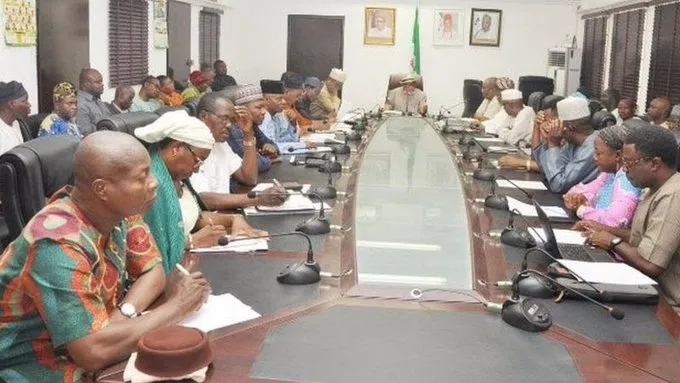Our Terms & Conditions | Our Privacy Policy
Global Comparison: Weaponisation of Poverty, Nigerian University Lecturers’ Declining

ASUU 3


ASUU
By Toba Alabi
Introduction
This paper examines how poverty has been weaponised to suppress academic staff in Nigerian universities, arguing that the economic marginalisation of academics is a deliberate strategy that undermines intellectual freedom, professional dignity, and national development. Through a global comparison—including the United Kingdom, Germany, South Africa, and the United States—the paper highlights the systemic underperformance of Nigerian academic structures. It concludes with strategic policy recommendations for salary reform, research funding, institutional renewal, and global integration to restore the dignity and productivity of Nigerian academia.
Poverty, when entrenched as a structural condition, transcends economic deprivation to become a political weapon. This process, often termed the weaponisation of poverty, describes how ruling elites exploit poverty as a means of social control and subjugation. In many developing countries, particularly Nigeria, poverty has been deliberately sustained through governance failures, weak institutions, and corruption, thereby limiting opportunities for socio-economic mobility and silencing potential resistance.
For Nigerian academics, this weaponisation has been uniquely devastating. Once regarded as a privileged group in post-independence Nigeria, university lecturers have seen their fortunes decline steadily since the economic crises of the 1980s and the imposition of neoliberal reforms. The introduction of the Structural Adjustment Programme (SAP) in the mid-1980s marked a turning point, as sharp reductions in public spending eroded academic salaries and research support (World Bank, 1994).
By contrast, in global perspective, academics in advanced economies are protected by structured pay scales, strong research ecosystems, and regular reviews. Nigeria, despite its oil wealth, has consistently failed to prioritise higher education, making its case particularly acute within Africa (World Bank, 2020).
The Weaponisation of Poverty: Conceptual Clarification
Weaponisation of poverty refers to policy designs that keep a targeted group—in this case, academic staff—in chronic economic hardship to limit resistance and intellectual autonomy. In Nigeria, this is manifested through:
Stagnant remuneration, with the last pay review dating back to 2009, leading to major erosion in real income.
Salary disruptions, including the “no-work, no-pay” policy during strikes.
Underfunded research support, with negligible allocations within university budgets.
Politicised governance, which weakens merit-based progression and autonomy.
These mechanisms keep academic staff vulnerable and compromise institutional development (UNESCO, 2015).
Declining Fortunes of Nigerian Academics
- Salary Erosion
In 2009, a professor earned approximately ₦500,000 per month—equivalent to about USD 3,000. As of 2024, with exchange rates at ₦1,500/USD, that same salary equals barely USD 300 per month, or less than USD 3,600 annually (World Bank, 2020).
- Research and Institutional Support
Academic staff often self-fund essential research needs—markers, internet, conferences, and even teaching materials. Nigeria spends far below UNESCO’s recommended 26% of national budgets on education, leaving universities chronically underfunded (UNESCO, 2017).
- Professional Prestige and Brain Drain
Deteriorating conditions have triggered mass resignations, international migration, and declining morale. The World Bank (2010) reports that Africa is losing skilled professionals to better-paying economies, with Nigeria as a major contributor to this “brain drain.”
Global Comparison
Country Professor Salary (USD/month) Research Support Infrastructure & Conditions
United States $9,000 – $12,000 High—federal & private grants Modern labs, low student–staff ratios
United Kingdom $7,000 – $12,000 Moderate–high (UKRI, charities) Digital libraries, advanced facilities
Germany $7,000 – $9,000 Strong public funding Stable infrastructure, clear career pathways
South Africa $4,000 – $6,000 Moderate Adequate facilities, stable academic calendar
Nigeria ~ $300 Low—mostly self-funded Poor infrastructure, frequent strikes
Additional Snapshots
Germany: W2–W3 professors earn €5,900–€8,000/month, with bonuses possible (OECD, 2021).
United Kingdom: Professors earn £68,531–£113,251 annually, with London Allowances included (DiscoverPhDs, 2020; UCL, 2025).
These systems are underpinned by structured pay scales, predictable increments, and strong research ecosystems—conditions absent in Nigeria.
Consequences of the Declining Fortunes
- Erosion of Academic Integrity – Financial desperation may foster unethical practices such as grade manipulation.
- Reduced Global Visibility – Persistent underfunding limits international research output.
- Weak Innovation Ecosystem – Nigerian universities struggle to serve as incubators for science and technology.
- Decline in Graduate Quality – Poor infrastructure and demoralised staff result in undertrained graduates (UNESCO, 2015).
Pathways to Reform
Salary Realignment: Peg Nigerian academic salaries to African benchmarks (e.g., South Africa, Kenya) and progressively align with OECD standards.
Research Empowerment: Reinstate research budget lines and establish national grant frameworks (World Bank, 2002).
Institutional Renewal: Upgrade libraries, labs, and ICT infrastructure.
Governance Reform: Merit-based, depoliticised promotion and recruitment.
Global Integration: Expand academic exchanges, joint research, and global funding access (African Union, 2015).
Conclusion
The weaponisation of poverty against Nigerian academics is not accidental but a systemic governance strategy. By freezing salaries since 2009 while inflation and currency depreciation escalate, the state has institutionalised poverty as a condition of service. Compared to global peers in Europe, North America, and South Africa, Nigerian academics are deliberately disadvantaged, producing a cycle of brain drain, institutional decay, and weak national competitiveness.
Reform must be bold: salaries pegged to realistic benchmarks, research funded adequately, and governance depoliticised. Above all, Nigerian academics must be recognised as critical to human capital development and national transformation. Without such action, universities will remain weakened, Nigeria will continue to lose talent abroad, and the dream of national development will remain elusive.
*Toba Alabi is Professor of Political Science, Defence and Security Studies.
12 August, 2025.
[email protected]
Images are for reference only.Images and contents gathered automatic from google or 3rd party sources.All rights on the images and contents are with their legal original owners.



Comments are closed.